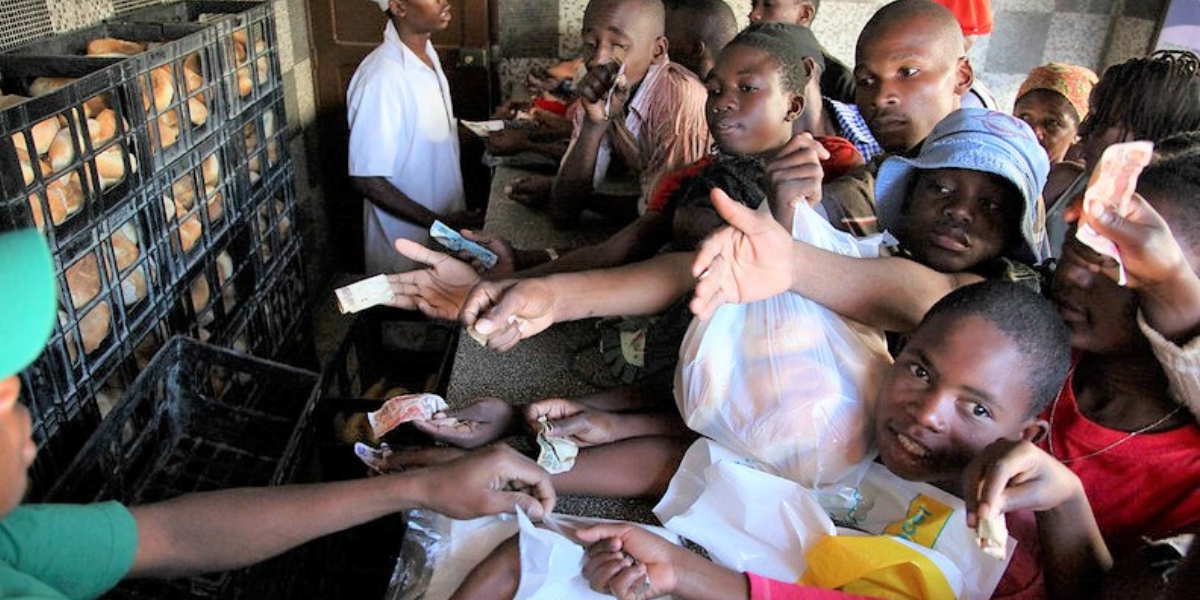Authors: Vincent Dauby (CIDSE), Valentin Brochard (CCFD-Terre Solidaire), Shiney Varghese (IATP)
On Monday 10th October, UN Members States, Civil Society representatives as well private sector and researchers gathered in Rome for the 50th session of the Committee on World Food Security (CFS). One of the main items for discussion was the international community’s response to the ongoing global food crisis . On the agenda were also discussions regarding the Voluntary Guidelines on Gender Equality and Women’s Empowerment and the endorsement of the CFS Policy Recommendations on Promoting Youth Engagement and Employment in Agriculture and Food Systems for Food Security and Nutrition.
| What is the CFS? The Committee on Food Security is the foremost inclusive intergovernmental and international political platform on food security and nutrition with the explicit vision to foster the progressive realization of the right to adequate food for all. Each year it gathers together UN Members States, civil society, private sector and researchers to negotiate political decisions to tackle food insecurity. |
The Voluntary Guidelines on Gender Equality and Women’s Empowerment were initially supposed to be adopted during this plenary session. Despite the negotiation’s difficulties, the Committee members all agreed to continue discussing them . No one denied the importance of women in the agriculture sector and the discriminations that they are facing. Thus, the CFS decided that the negotiations will continue based on the CFS Chair’s new draft guidelines.
The CFS Policy Recommendations on Promoting Youth Engagement and Employment in Agriculture and Food Systems for Food Security and Nutrition, which aims at encouraging public policies to foster enabling environments capable of tapping into the energy and skills of youth to improve food systems, were endorsed. The Civil Society and Indigenous People Mechanism (CSPIM) recognized some good elements in the text but has some concerns such as the failure to refer to the UN Declaration on the Rights of Peasants (UNDROP) and the UN Declaration on the Rights of Indigenous People (UNDRIP), or to mention key concepts such as food sovereignty.
As expected, regarding the international community response to the global food crisis, the conflict in Ukraine politicized the discussions and negotiations and brought difficulties in reaching an agreement.
The CSIPM had to remind several times every constituencies that the Committee on World Food Security is the dedicated place to discuss and promote ways to create the right conditions to ensure the right to food for all. The CFS is a forum of political negotiations to discuss ways forward to tackle food insecurity: this is neither a place where a State can veto an outcome; nor a place for geopolitical fights to hinder the negotiations.
Unfortunately, this year, Member States failed to remember this and this 50th session of the CFS was particularly disappointing. Most of the discussions were monopolized by Membes States blaming each other regarding their responsibility in the current level of world food insecurity and nearly no negotiation time was actually dedicated to figure out what the CFS could do to tackle this situation. While the world is facing its worst food crisis of the 21st century, not all Members States failed the CFS: some of them, in support of civil society positions, tried to advocate for the CFS to launch a joint political initiative to tackle the crisis. Unfortunately, this was without success, as all the debates were focused on the “blaming game” around the consequences of the Ukrainian conflict.
As a result, and maybe for the first time in the history of the CFS, negotiations were stuck to a point that no solutions were in sight. As a result, the 50th session of the CFS could not be concluded and it will continue online in the coming weeks. While this is another opportunity to try to put things in motion for a real, coordinated, and international answer to the food crisis, this failure illustrates clearly the current struggle of international food governance and multilateralism. The core “raison d’être” of the CFS might be at risk.
Contact: Vincent Dauby, dauby@cidse.org
Photo credits: “Rushing to buy bread as wheat runs short and food prices rise in Mozambique” by International Livestock Research Institute is licensed under CC BY-NC-SA 2.0.

